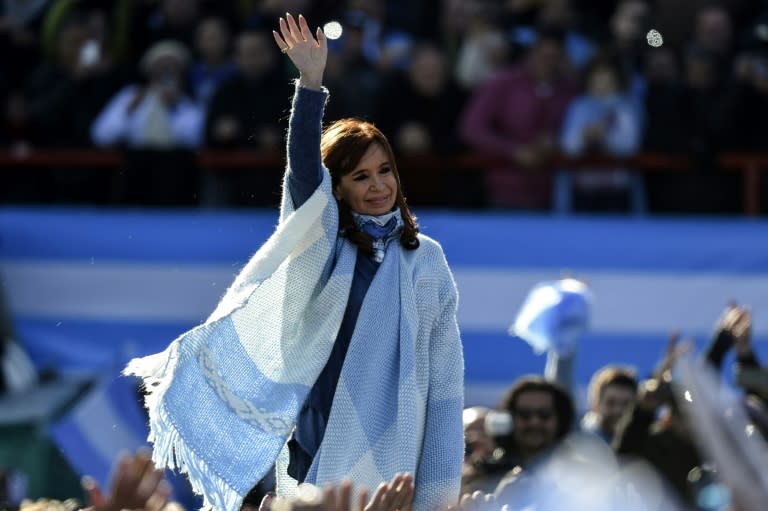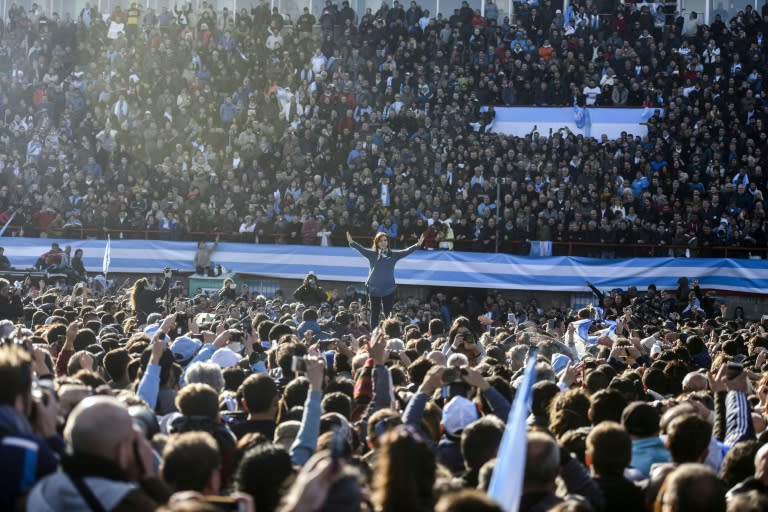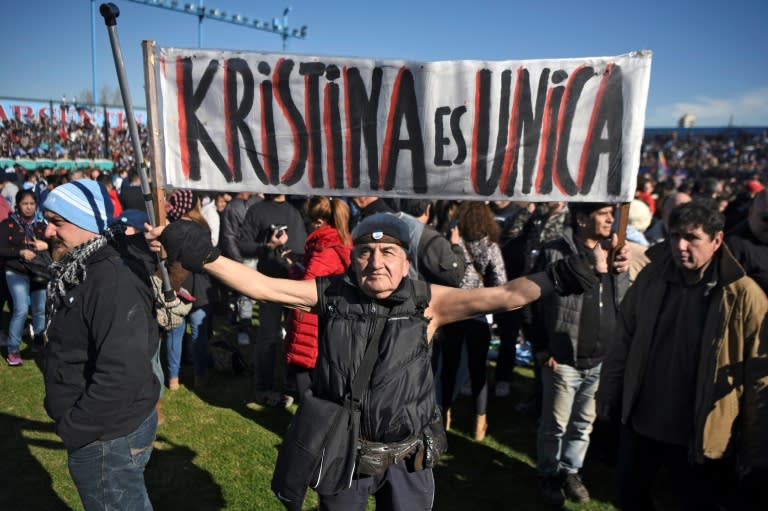Kirchner, divisive Argentina ex-leader back in fray
Cristina Kirchner, the leftist ex-president who dominated Argentine politics for years alongside her late husband, has remained a divisive figure since leaving power -- and is now seeking public office again. The 64-year-old will make a bid for a Senate seat in October's midterm elections -- despite facing corruption charges -- two top party officials in her party announced Saturday. Kirchner took office in 2007, vowing to continue the work started by her husband Nestor Kirchner, who in 2003 inherited an economy in shambles after what was then the largest sovereign debt default in history. Since standing down two years ago she has channeled popular anger against the budget cuts of her successor Mauricio Macri, launching a new party called Citizen Union, and her return to politics spells a headache for the conservative president. Her supporters hope a seat in the Senate might pave the way for a fresh presidential bid in 2019. It could also spare her jail: the mother of two is being investigated over three sets of corruption charges and faces trial in a fourth case of alleged financial mismanagement as president. She denies wrongdoing and says the cases are politically motivated. - Kirchner's legacy - To her working-class base, Kirchner and her late husband Nestor were saviors who rescued Argentina after a 2001 economic crisis and stood up for the country's underdogs. Nestor turned the country around thanks to booming demand for Argentine agricultural exports and his tough negotiations to restructure most of the country's $100 billion in privately held debt. A practicing Catholic, Cristina oversaw a reform in 2010 that made Argentina the first country in Latin America to legalize same-sex marriage nationwide. After Nestor died of a heart attack that year, she defended his legacy and won re-election in 2011. But to her opponents, Kirchner is a bully who steered the economy back into recession and embarrassed the country with attacks against her favorite foes. They included the old Falklands War enemy Britain, big media conglomerates she sought to dismantle, and "vulture" fund capitalists who sued Argentina over its defaulted debt. She left office in 2015 -- when term limits barred her from running again -- with an approval rating of more than 50 percent. But she failed to get her chosen successor elected. Argentines voted for the center-right businessman Macri instead. Kirchner now accuses Macri's camp of trumping up charges to sideline her from politics. - Power couple - Born in La Plata, near Buenos Aires, Kirchner met Nestor as a 20-year-old student and married him six months later. Nestor became governor and Cristina a senator in Santa Cruz province in Patagonia. Cristina Kirchner has sought to channel the legacy of Eva Peron, the first lady of the populist president Juan Peron in the 1940s and 50s. But while many Argentines worship Evita, Kirchner's legacy is darker. In one case, she is accused of favoring a construction magnate friend for public contracts in Patagonia. She also stands accused of ordering the central bank to sell dollar futures at artificially low prices, costing Argentina hundreds of millions of dollars. And critics continue to link her to the mysterious 2015 death of Alberto Nisman, a prosecutor who had accused her of obstructing his investigation into a 1994 bombing at a Buenos Aires Jewish center. That case has been thrown out in several courts. Nearly every time Kirchner appears in court, swarms of protesters rally outside in her support. Asked in 2015 how he thought she would spend her post-presidential life, her former chief of staff Anibal Fernandez said she "won't just stay home picking roses or taking care of the grandkids." burs-mdo/ec




